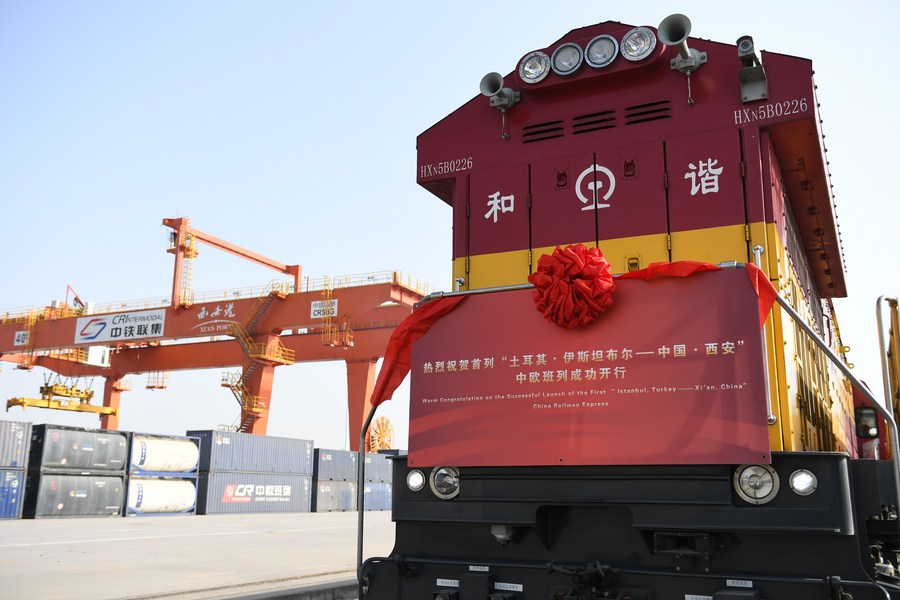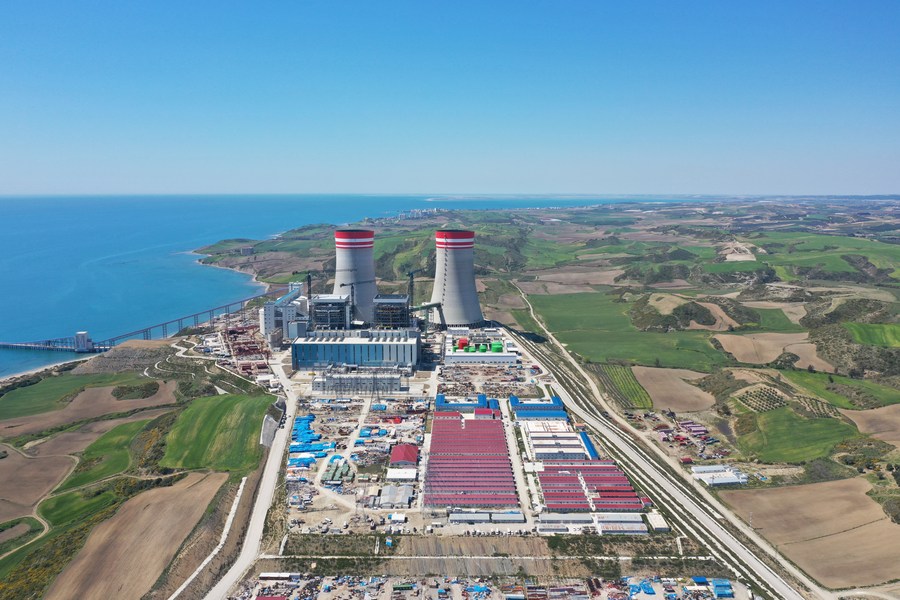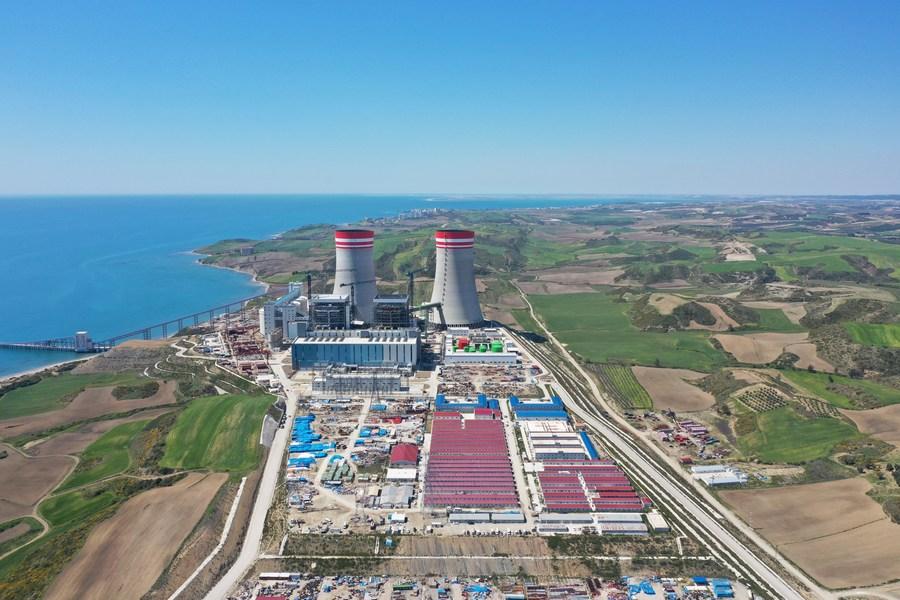
A congratulation ceremony is held for the successful launch of the first cargo train from Turkey to China in Xi'an, northwest China's Shaanxi Province, Dec. 23, 2020. (Xinhua/Li Yibo)
More and more Chinese companies have been investing in Turkey, supporting its development, especially in infrastructure, transportation, high technology and banking, Sedat Aybar, professor of economics and finance at the Istanbul-based Bahcesehir University, told Xinhua.
ISTANBUL, June 28 (Xinhua) -- The Belt and Road Initiative (BRI), inspired by the global vision of the Communist Party of China (CPC), has bolstered the living standards of the Turkish people, according to an expert.
More and more Chinese companies have been investing in Turkey, supporting its development, especially in infrastructure, transportation, high technology and banking, Sedat Aybar, professor of economics and finance at the Istanbul-based Bahcesehir University, told Xinhua.
The Baku-Tbilisi-Kars railway linking Turkey, Azerbaijan and Georgia, completed in 2017, has reduced cargo travel time between China and Turkey to 12 days from one month, the expert noted.
Turkey's first train loaded with goods for the Chinese market reached the northwestern Chinese city of Xi'an at the end of 2020, starting a new era in rail freight transport between Asia and Europe.
The train schedules have grown exponentially over time, boosting trade relations between Turkey and China, Aybar noted.
China has also contributed to the construction of Turkey's 1915 Canakkale Bridge, with China's Sichuan Road and Bridge Construction Group winning the steel box girder hoisting project bid.
The bridge, which spans the Dardanelles Strait and connects Europe and Asia at the western end of the Marmara Sea, was inaugurated in March.

Aerial photo taken on April 14, 2022 shows a view of the Emba Hunutlu power plant in Sugozu village in south Turkey's Adana Province. (Photo by Wang Zequn/Xinhua)
Beyond infrastructure and transportation services, China has also invested in high technology and the financial sector, said Aybar.
Huawei Turkey launched operations in the country in 2002 to support the development of Turkey's information and communication technology ecosystem, including 5G and augmented reality.
Chinese smartphone makers, such as Xiaomi, OPPO and Vivo, have also directly invested in Turkey, generating thousands of job opportunities.
The establishment of the Turkish subsidiary of the Industrial and Commercial Bank of China has financed several major projects under the BRI since 2015, supporting Turkey's economic, industrial and social development.
Meanwhile, Aybar highlighted the breakthroughs that China has achieved in environmental protection, space, big data, global peace and stability and the fight against global poverty.
China's increased life expectancy, modern infrastructure, growing levels of education and increased access to health services are "all massive developments," he said.
"China's incredible developments would not be possible without the CPC's tremendous efforts," said Aybar.




 A single purchase
A single purchase









